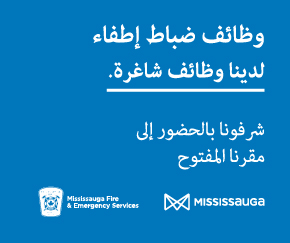اخبار العرب-كندا 24: الجمعة 28 يونيو 2024 05:26 صباحاً
For Lamia Charlebois and many other Lebanese Montrealers, travelling to Lebanon is not a luxury but a necessity.
"You don't travel to Lebanon like you travel to Tuscany.… It's not a fancy vacation. We have families there," she said.
The public relations consultant has been to her home country twice since October and has been closely following recent developments in the armed conflict between Hezbollah — a militant Lebanese group — and Israel.
"But we should not let this stop us from contributing to the economy of Lebanon by trying to continue our normal lives," she said. "Otherwise, it's a defeat."
Many members of the Facebook group she founded 13 years ago share that sentiment.
The group Libanais de Montréal - Sirop d'arabe, has grown to more than 13,000 members in that time. According to Statistics Canada, Montreal has more people who identify as Lebanese than any other Canadian city.
Although Charlebois's family is mostly in Beirut, she fears for people in the south of the country near the border with Israel where tensions keep growing.
On Tuesday, Foreign Minister Mélanie Joly had a clear warning for anyone planning to visit the country.
"It is not the time to travel to Lebanon. And for Canadians currently in Lebanon, it is time to leave, while commercial flights remain available," she said in a statement.
The Canadian military is planning for the evacuation of 20,000 people should full-scale fighting erupt between Israel and Hezbollah. But those plans heavily depend on allied support.
As the exchange of rockets between Hezbollah and Israel intensifies and as the Canadian government contemplates the possibility of another war, members of Montreal's Lebanese diaspora worry about a repeat of 2006.
That year, Canada helped get almost 15,000 people out of the country after war erupted.
Charlebois was in Lebanon at the time and remembers it vividly.
"I escaped 2006 in a taxi. It scared the hell out of me, but I did it," she said.
Today, she feels angry, scared and stressed.
She says she's one of many who are angry about "[a] country aggressing another country under the watchful eye of the international community."
"I'm always worried about Lebanon, it's always on my mind," she said. "But we're very strong."
With the safety of their loved ones weighing heavily on the hearts of Lebanese Montrealers, many share their worry over travelling to the country at this tense moment.
Sophia El-Chaar, Charlebois's neighbour and friend, visits Lebanon, where most of her family lives, at least once a year. But this year, her travel plans could be in jeopardy.
She's booked to leave in less than a week, to visit her aging parents and attend her cousin's wedding and other important events like first communions and baptisms.
"They say safety first, but I also say family first. It's important. Both are important," said El-Chaar.
With siblings who live abroad, she says the summer is the perfect occasion to host big family gatherings in her home country.
"We lost [a] few members and it's just important to be there," she said. "It's like a need."
'Everyone is on edge in Lebanon'
The Hezbollah-Israel conflict existed long before last October, but the situation at the border between Lebanon and Israel has "deteriorated," according to Marie-Joëlle Zahar, a professor of political science at the Université de Montréal, since then.
"There have been a number of military confrontations between Israel and Hezbollah in the past, particularly in 1995 and 2006, none of which have really been settled. There have been ceasefires, but the underlying issues are still there," she said.
She described the recent situation at the border as "extremely tense," resulting in the displacement of over 90,000 Lebanese civilians and an order from the Israeli government to evacuate 60,000 of its people from villages near its northern border.
The violence has largely consisted of rocket exchanges between Israel and Hezbollah, but in recent months, she said Israel has also used drones "to go deep into Lebanese territory and attack military officials from Hezbollah."
But the "reason why everyone is on edge in Lebanon," according to Zahar, is the Israeli reaction to a video released by Hezbollah.
The Lebanese militant group — which was formed in 1982 primarily to combat occupying Israeli forces in southern Lebanon — claimed the video was taken by a drone that penetrated deep into Israeli civilian territory and some of the state's most sensitive sites such as its naval base at Haifa.
The Israeli decision whether or not to start an all-out war with Hezbollah is imminent and Israeli generals said they signed off plans for an offensive targeting its northern neighbour, as reported by several media outlets.
Members of the Montreal Lebanese community like El-Chaar will continue monitoring the situation and will have to make difficult last-minute decisions.
"We want to go visit our parents, our grandparents, our brothers and siblings who are there. And at the same time we want to feel that we're safe," said El-Chaar.
But for some, getting on that plane is worth the risk.
"Certainly if you watch the news, you wouldn't go. But once you're there, you realize that it's worth hugging that uncle, kissing that aunt, visiting the grave — your parent's grave. It's worth it," said Charlebois.
تم ادراج الخبر والعهده على المصدر، الرجاء الكتابة الينا لاي توضبح - برجاء اخبارنا بريديا عن خروقات لحقوق النشر للغير






